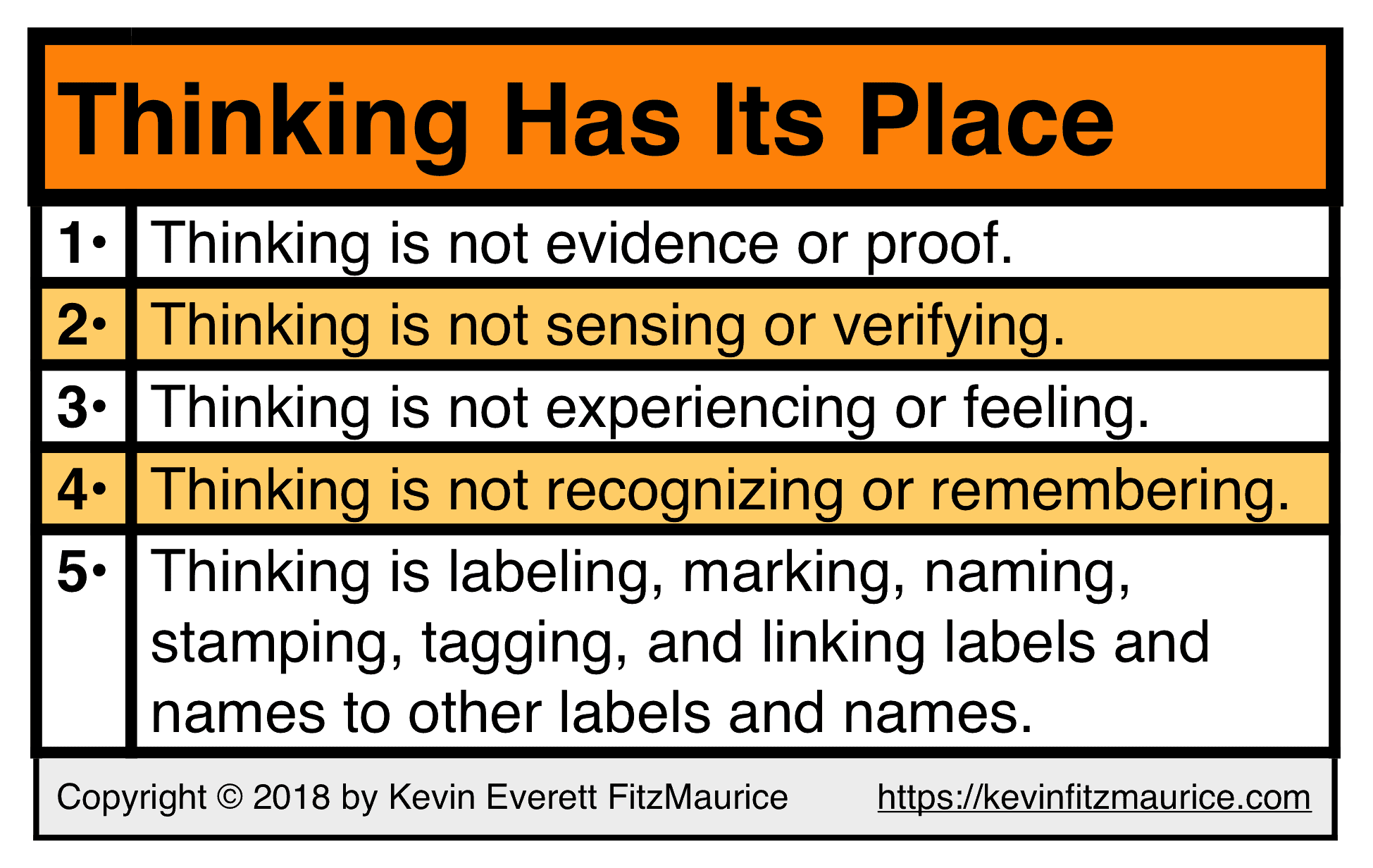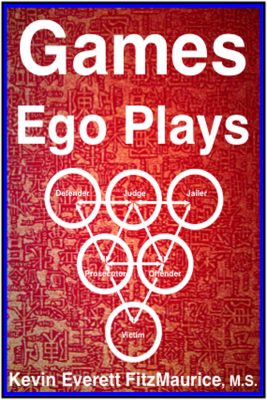ThinkingValuableProblematicIts PlaceRelated Pages6 Groups of Topics9 Skills & Topics
Thinking Has Its Place
- Garden will teach you an easy and effective Cognitive Behavioral Therapy (CBT & REBT) system.
Thinking has its place. Thinking becomes the creator and sustainer of every problem when used in place of other tools.
“Thus the negative perception is the triumph of consciousness.” —Alfred North Whitehead
- Read and discover the best diagrams and maps of how people play games with your mind and heart.
Thinking Has Its Place
Thinking Is Valuable
- Thinking is the best tool for many functions.
- Thinking is useful for:
- Labeling.
- Using labels to compare labels.
- Using labels to connect or link to other labels.
- Using labels to create a database of labels
- to locate or find something with a label.
- Using labels to mark or designate boundaries.
- Using labels to measure something with labels.
- Using labels to name something to be able to speak of it.
- Using labels to remember or record something with a label.
- Using labels to sort or organize something as labels.
- Using labels to track or show progress as labels.
- Using labels to understand or relate to other labels.
- Read and discover the best diagrams and maps of how people play games with your mind and heart.
Thinking Has Its Place
Thinking Is Problematic When Used Incorrectly
- When you use sensible beyond its function, purpose, and scope, then you create problems.
- Thinking is not useful as or in place of:
- ability
- compassion
- effort
- evidence
- experience
- faith
- feeling
- insight
- intelligence
- learning
- love
- skill
- talent
- understanding
- work
Book on Hundreds of Thinking Errors
- Read to understand how thinking makes the world insane.
- Read and discover the best diagrams and maps of how people play games with your mind and heart.
Thinking Has Its Place
Keep Thinking In Its Place

- Read and discover the best diagrams and maps of how people play games with your mind and heart.
Thinking Has Its Place
Related Pages of Free Information
- Attachment & Detachment
- Becoming Is the Enemy
- CBT, CT, & REBT Cognitive Psychotherapies: List Pages
- Coping Skills: Free Help
- Counseling Issues: Free Help
- Deconstructivism: The Answer
- Detachment & Identity
- Desire: Attachment to Desire Problem, Not Desire
- Ego & Self-Esteem Fast-Facts
- Emotional Responsibility: List Pages
- Exercises & Techniques: List Pages
- Feelings & Coping: Fast-Facts
- Meditation: List Pages
- REBT (Rational Emotive Behavior Therapy): List Pages
- Self-Esteem Issues: List Pages
- Thinking Errors: List Pages
- Thinking Skills: Free Help
- Unconditional Self-Esteem (USE): Defined
- Read and discover the best diagrams and maps of how people play games with your mind and heart.
- Read and discover how CBT, REBT, & Stoicism evolved into one system: STPHFR.
Thinking Has Its Place
6 Groups of Topics Menu
- 1. Pages by Topic
- 2. Fast-Facts by Topic
- 3. Quotations by Topic
- 4. Poems by Topic
- 5. Scripture by Topic
- 6. Websites by Topic
- Read and discover how CBT, REBT, & Stoicism evolved into one system: STPHFR.
- Read and discover the world’s best breathing exercise for centering and peace of mind.
- Read and discover the best diagrams and maps of how people play games with your mind and heart.
Thinking Has Its Place
9 Skills & Topics Menu
- 1. Anger Skills & Topics
- 2. Blame Skills & Topics
- 3. Communication Skills & Topics
- 4. Coping Skills & Topics
- 5. Counseling Skills & Topics
- 6. Praying Skills & Topics
- 7. Recovery Skills & Topics
- 8. Responsibility Skills & Topics
- 9. Thinking Skills & Topics
- Read and discover how CBT, REBT, & Stoicism evolved into one system: STPHFR.
- Read and discover the world’s best breathing exercise for centering and peace of mind.
- Read and discover the best diagrams and maps of how people play games with your mind and heart.




